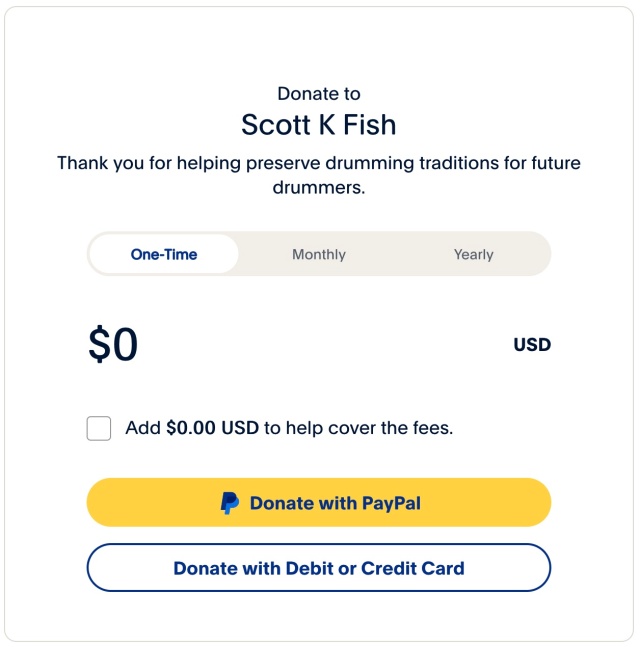
SKF NOTE: Why does Baby Dodds matter? It’s year 2019. What can today’s drummers learn from a drummer born in 1898 who died 60 years ago?
Well, I am always interested in discovering drumming roots. Gene Krupa was the first drummer to grab my attention when I was six years old. Later, through reading about Gene Krupa — including Krupa interviews — I discovered he revered Baby Dodds’s drumming. Krupa used to watch Dodds drum in theaters and nightclubs.
To a degree, Baby Dodds mentored Gene Krupa. Krupa studied Dodds by watching the elder man behind the drumset. And we know they were on speaking terms. In interviews, Krupa mentions drum advice he received from Dodds.”
“Baby taught me more than all the others — not only drum playing but drum philosophy. He did all that the others did, and more. He was the first great drum soloist. His concept went on from keeping time to making the drums a melodic part of jazz. It was partly the way he tuned his drums — the intervals he used. I got that from him. And it was partly his concept of tone. Baby could play a tune on his drums, and if you listened carefully, you could tell the melody,” said Krupa in Eight Lives in Jazz Combo U.S.A. by Rudi Blesh.
Of course, Dodds influenced other great jazz drummers of Krupa’s generation (i.e. Dave Tough and George Wettling) — and for this alone Baby Dodds matters.
I mostly admire Dodds’s press roll. Before drummers relied on the hi-hat, then the ride cymbal, as the dominant timekeeping elements of drumset playing, drummers used their snare drums. Played on a snare drum, the familiar ride cymbal timekeeping ding-dinga-ding was played as accents and press rolls.
Dodds’s recording career happened when live music recording was primitive. That’s especially so to ears accustomed to listening to modern digital music recordings.
But there are two Baby Dodds records I was very excited to find and to listen. Footnotes to Jazz, Vol. 1: Baby Dodds Talking and Drum Solos was the first and it is still available.
There’s also a 1953 Dodds interview by Bill Russell. It’s also available on Chip Stern’s web site. In this interview, as Chip notes, “Dodds shares his insights on the spiritual and human side of the percussionist’s art, in an impassioned soliloquy about how a drummer can learn to play for the benefit of the band.”
I first read this Dodds interview long ago and it remains one of most insightful pieces of drummer philosophy ever written. Dodds’s perspective, his advice, is timeless; as true today as it was in 1953 and before.
These are key reasons why Baby Dodds still matters.


You must be logged in to post a comment.